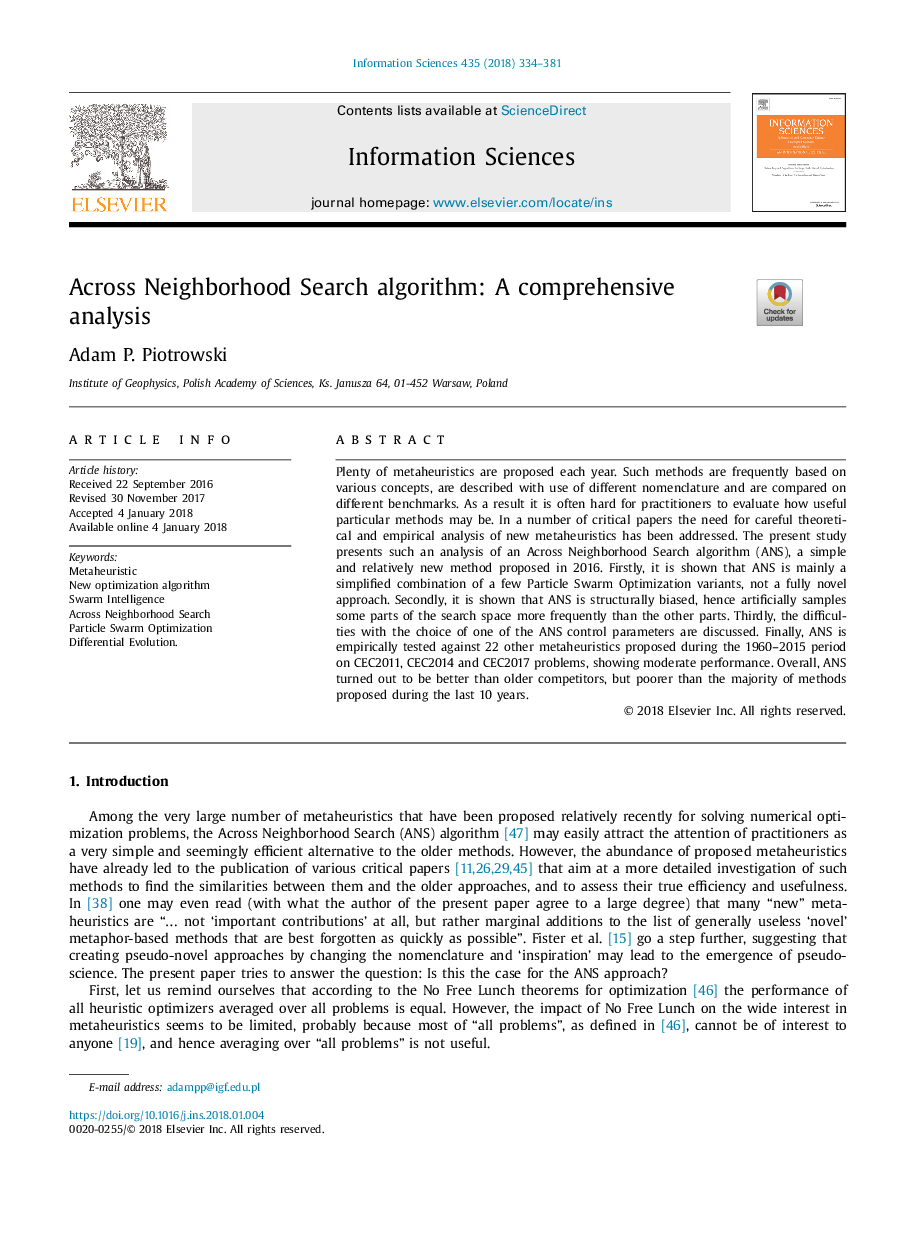| Article ID | Journal | Published Year | Pages | File Type |
|---|---|---|---|---|
| 6856704 | Information Sciences | 2018 | 48 Pages |
Abstract
Plenty of metaheuristics are proposed each year. Such methods are frequently based on various concepts, are described with use of different nomenclature and are compared on different benchmarks. As a result it is often hard for practitioners to evaluate how useful particular methods may be. In a number of critical papers the need for careful theoretical and empirical analysis of new metaheuristics has been addressed. The present study presents such an analysis of an Across Neighborhood Search algorithm (ANS), a simple and relatively new method proposed in 2016. Firstly, it is shown that ANS is mainly a simplified combination of a few Particle Swarm Optimization variants, not a fully novel approach. Secondly, it is shown that ANS is structurally biased, hence artificially samples some parts of the search space more frequently than the other parts. Thirdly, the difficulties with the choice of one of the ANS control parameters are discussed. Finally, ANS is empirically tested against 22 other metaheuristics proposed during the 1960-2015 period on CEC2011, CEC2014 and CEC2017 problems, showing moderate performance. Overall, ANS turned out to be better than older competitors, but poorer than the majority of methods proposed during the last 10 years.
Related Topics
Physical Sciences and Engineering
Computer Science
Artificial Intelligence
Authors
Adam P. Piotrowski,
